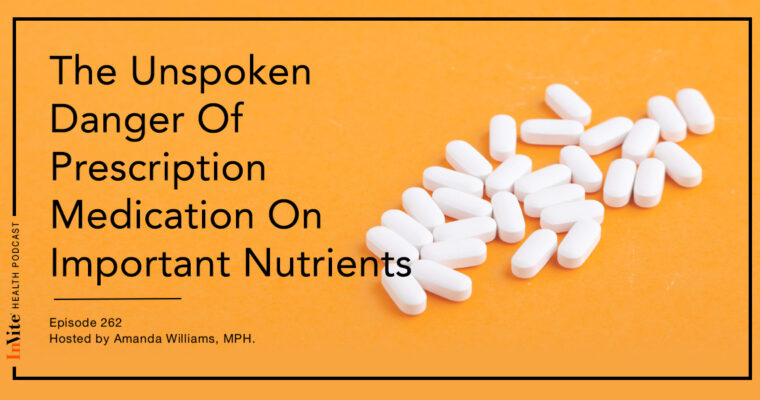Asking your doctor questions about your health is one of the most important things you can do at your appointment. Whether you trust your doctor or are just hopeful that the new medications that have been prescribed to you will work, asking your doctor questions about your prescription is very important. Not only can your questions prevent potentially dangerous side effects, they can also eliminate the potential for medical errors. Here are six questions you should ask your doctor before filling a prescription, according to Fox News:
- Am I at risk for drug interactions?
According to the FDA, a drug interaction is caused when the medication a person is taking has a negative side effect when combined with food and beverages, dietary supplements or other drugs. To prevent drug interaction, be sure to explain all of the medications and supplements you are currently taking to your doctor. Your doctor can then advise you on what to stop taking, alternative methods that could be beneficial to you and their potential side effects.
Click here to view InVite®’s Drug-Induced Nutrient Depletion chart for more information!
- What side effects should I look out for?
The side effects of prescription drugs can range in very minor to very severe. We’ve all seen the commercials that seem to go on and on with a list of negative side effects longer than the list of the drug’s benefits. From a bad cough to liver damage, the side effects when taking prescription drugs can leave you feeling worse than you did before. Speak with your doctor about all side effects of the medication before leaving his or her office. If you know what to look out for, you can plan accordingly or, decide if the side effects are even worth the risk.
- What is my dose and how should I take the medication?
Because the process of actually picking up your medication must go through numerous steps (your doctor prescribing the medication and pharmacies actually filling the medication), medical errors can occur and you will be the only one affected. Be sure to speak with your doctor about the exact dosage that he or she is prescribing to you. When you pick up your prescription, if there is different dosage information on the bottle or box, you know someone has made an error. Don’t start taking medication before you are completely sure you are taking the right dosage. Half way through the bottle of your medication is far too late to discover an error.
- Are there generic forms of this medication available?
There is nothing wrong with a generic form of medication. Many people like to purchase “brand-name” drugs or products just because of their name. However, the differences between a generic form of medication and a “brand-name” form of medication, are little to none. “Generic drugs are copies of brand-name drugs and are the same as those brand name drugs in dosage form, safety, strength, route of administration, quality, performance characteristics and intended use…All generic drugs approved by the FDA have the same high-quality, strength, purity and stability as brand-name drugs. The generic manufacturing, packaging and testing sites must pass the same quality standards as those of brand name drugs”, states the FDA. The main difference between the two drugs are its price. Speak with your doctor to see if a generic brand is available.
- Is this drug covered under my insurance?
Your insurance company does not only limit the doctors you can see but they also limit the drugs that they will cover. One of the worst things that can happen when dealing with prescription medication is receiving a huge bill because you did not know your insurance did not cover it. If your insurance covers your prescription, you may not realize just how expensive some medications can be. Speak to your doctor, the receptionist at the doctor’s office or call your insurance company directly to ensure that the specific medication that is prescribed is covered by your insurance.
- How many refills do I need for this medication?
Many times, the bottle or box on the medication itself will state how many refills you are to receive out of this medication. Medical error is not the only thing you need to watch out for. According to Fox News, “Some drugs are designed to treat chronic conditions and can be taken for weeks, months or years. But others carry greater risks with each refill. If you’ve taken a round of antibiotics and are still sick, getting a refill isn’t just unlikely to make you well, it could make your body and future infections resistant to antibiotics.” Always ask your physician how many refills you should receive out of the medication and always be sure to follow up with your doctor, especially if you are not receiving the results your doctor advised that you would on this medication.
What happens when you’ve had your appointment and followed your MD’s instructions but still feel sick afterwards? You should visit a naturopathic doctor. Naturopathic doctors are trained natural healthcare physicians at accredited 4-year medical schools. What sets them apart from your current physician is their holistic and natural approaches to healing (Think: nutrition, herbs, acupuncture and vitamins). Where your current physician may prescribe antibiotics, naturopathic doctors (NDs) will focus on the causes of your problem like a poor diet or chronic stress. Think about making an appointment to sit with a naturopathic doctor and learn natural ways holistic and natural approaches to healing your body can work for you.
Source: http://www.foxnews.com
What are some other questions you are sure to ask your physician before taking a new medication?



